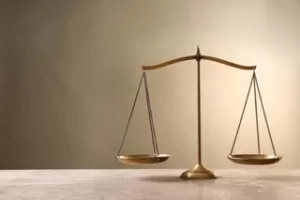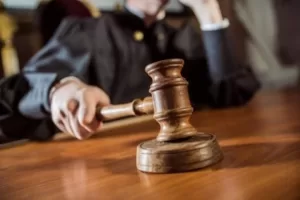Receiving a charge for drunk driving can be a traumatic experience. Whether it is a first charge, or there have been previous incidents, getting slapped with a DUI, OVWI, or other similar violation can completely disrupt a person’s life. The consequences can, and often do, include loss of employment, thousands spent in legal fees and other costs, time spent in jail, and emotional isolation from family and friends.
For many individuals who have been charged with drunk driving – particularly those being charged for the first time – the forces coming at them may seem insurmountable. The police, the prosecutors, even the courts, all seem aligned to crush the defendant, and to someone with little or no experience with the legal system, it may appear as though a conviction or guilty plea is all but inevitable.
It is true that the vast majority of drunk driving charges are settled with guilty pleas, and for those that proceed to trial, the majority result in wins for the prosecution. Each case is unique, and so only by reviewing a case with an experienced attorney can an individual determine whether proceeding to trial would be a wise course, or if accepting a plea deal would be the better decision. However, anyone charged with drunk driving should know that there are no foregone conclusions in these cases, and that valid defenses do exist which could possibly lead to victory at trial, or a very attractive plea bargain. We will discuss some of these defenses below.
Legality of the Stop
In order for a police officer to pull someone over, they must have a reasonable suspicion that the person or someone in their vehicle is participating in criminal activity. If an officer does have reasonable suspicion of criminal activity, he or she may pull the person over, detain them for a short time, conduct a brief investigation, and collect evidence. For DUI stops, such an investigation might include sobriety tests and other observations. If a DUI defendant can show that the initial police stop was improper, or that the officer did not have reasonable suspicion for the stop, then evidence collected from the stop – including any sobriety test information – would be inadmissible in court.
Accuracy of Observations
If a police officer pulls a person over under suspicion of drunk driving, the officer will be looking intently for clues as to the driver’s current state and immediate surroundings. Some clues that might suggest intoxication would be bloodshot eyes, slurred speech, slow reaction time or poor display of motor skills, and perhaps the smell of alcohol. While all of these traits may in fact indicate high alcohol intake in an individual, they may also be attributable to other factors. Some other factors which may give rise to similar traits might include an adverse reaction to something eaten or ingested, side effects of a prescribed medication, a long-standing medical condition, and other possible causes. Establishing one of these alternative factors as the cause of what appear to be symptoms of drunkenness could seriously challenge the prosecution’s charge of drunk driving.
Credibility of Tests
When searching for defenses which can be used to fight a drunk driving charge, one area that can be richly mined is that of test credibility. Officers will typically run one or more tests on an individual who they suspect of driving drunk. However, it should not be assumed that these tests are always carried out properly, or that the results are always totally accurate. Successfully challenging the implementation or the results of these tests could provide a strong defense against a drunk driving charge.
The first tests that are often done on a driver are the field sobriety tests. These are tests that are administered on the spot, and include the one-leg-stand, the walk-and-turn, and the horizontal nystagmus assessments. These tests have been shown to be of questionable reliability, at best, and there are a number of factors other than intoxication, which can lead to poor performance on them. Some of these factors include obesity, the presence of a physical ailment, poor weather conditions, poor or ill-fitting footwear, or naturally poor coordination on the part of the motorist.
After the field sobriety test, if an officer believes that a motorist has shown signs of impairment, more scientific examinations are usually undertaken. The first scientific test often given is the Breathalyzer, or something similar to it. Breathalyzers estimate an individual’s blood alcohol content (or BAC) from a breath sample. Although breathalyzers provide more scientific information than field tests, many people believe them to be completely accurate, and this is not necessarily the case. Breathalyzers are capable of delivering heightened BAC readings, due to a number of causes, including improper maintenance, user error, malfunctioning equipment, the health of the individual being tested, or the presence of other medications in an individual’s system. Breathalyzer assessments should be thoroughly analyzed to see if any of these factors may have come into play.
In addition to breathalyzer tests, officers may also conduct direct blood tests on a motorist at a medical facility, in a special section of a police station, or in special DUI-testing vehicles. In these tests, a sample of blood is taken from the allegedly drunken motorist, and is scientifically tested in a laboratory. While these tests are more thorough and scientific than the other types of tests, they too are vulnerable to errors or false readings. Some things that can be challenged on a blood test include the testers themselves (were they properly trained or experienced enough to be managing the test?), the equipment (was it properly maintained and up-to-date?), and chain-of-custody (were there any breakdowns in the chain-of-custody protocols that govern transfers of such critically important evidence?).
Receiving a DUI, OVWI, or other similar intoxication charge can be a very painful and intimidating experience. However, by applying the defensive tools above to their situation, a charged individual can at least gather the information needed to mount a strong defense, and put themselves in the best position to beat the charges against them, or mitigate the damage. As always, it is best to seek the guidance of an experienced criminal attorney when faced with such a situation.
Contact us if you have any additional questions or need assistance with a legal matter.
NOTE
This article primarily references Indiana law. Please check the laws of your local jurisdiction if you live in another state.
The articles in this blog are for informational purposes only. No attorney-client relationship is established through the publication of these articles.







